
Latin America: Week in Review, Mexico
Mexico: Zetas & Sinaloa Cartels Dominate Drug War
October 3, 2011 By Staff
Today in Latin America
Top Story — Five years after Mexican President Felipe Calderón launched his war against the country’s drug traffickers, two cartels have come to dominate Mexico’s drug markets and trafficking routes. According to Mexican federal authorities, the paramilitary-like Zetas Cartel and the Sinaloa Cartel, run by the billionaire Joaquín “El Chapo” Guzmán, are the country’s top drug organizations. The two groups have been able to attain this status thanks in part to their ruthless tactics — including murders and kidnappings — but also because the Mexican government has killed and captured leaders of many other cartels, allowing for the Zetas and Sinaloa cartels to expand territory and business opportunities. The two organizations now appear to be battling one another to become the premier cartel in Mexico. In September, the Sinaloa cartel allegedly left 35 bound, tortured bodies in the resort city of Veracruz and in May more than two dozen people, most of them Zetas, were killed after attempting to infiltrate the Sinaloa cartel’s territory in the Pacific Coast state of Nayarit. If neither group can attain full control of the drug trade, some experts claim that the ensuing violence could lead to the demise of both groups — and the end of Mexico’s drug war. “The question is whether the Sinaloa cartel and Zetas are going to break at some point or not,” said drug trade and security expert Jorge Chabat. “Right now they are very strong, but if in two or three years these cartels are pulverized, they may say that (the drug war) was a success.”
Read More From The Boston Globe.
Headlines from the Western Hemisphere
North America
- Mexican authorities found seven dead bodies in the resort town of Zihuatanejo Sunday, bringing the death toll for the region over the weekend to at least 20 people along a stretch of coastal tourist destinations.
- An investigation by Mexico’s Human Rights Commission is underway after an elementary school for allegedly forcing sixth-graders to strip down after $13 disappeared.
- A protest against Alabama’s tough immigration law ended without incident over the weekend.
Caribbean
- Jamaica’s outgoing Prime Minister Bruce Golding said Sunday that the negative public perception of his handling of a U.S. extradition request for drug kingpin Christopher “Dudus” Coke contributed to his decision to resign from office.
- René González, an airplane pilot imprisoned for 13 years for spying on anti-Castro groups in Miami, will leave jail on Friday, but must serve another three years on probation in the United States before returning to Cuba.
- Fraud remains rampant among Dominican baseball prospects hoping to break into the U.S. major leagues, according to a report in The Miami Herald.
- Supporters of twice-ousted Haitian President Jean-Bertand Aristide held a rally Friday marking the 20th anniversary of the military coup that overthrew him the first time in 1991.
Central America
- Climate envoys from nation’s around the world kicked off talks in Panama Saturday in the run-up to the year-end conference in Durban, South Africa.
- The Brooklyn Museum in New York returned a number of pre-Columbian objects to Costa Rica earlier this month, some of which are believed to be over 2,300 years old.
Andes
- Bolivian protesters are continuing the last 250 kilometers of their march to LaPaz to protest the planned construction of a highway through indigenous land.
- The Ecuadorean government says that newspapers took out of context President Rafael Correa’s statement alleging that the U.S. was providing support to corrupt members of the country’s police force.
- Venezuelan President Hugo Chávez made statements in support of deposed Libyan leader Muammar Gaddafi and Syrian President Bashar al-Assad on Saturday.
- A report by Human Rights Watch contradicts claims by the U.S. government that Colombia is making progress on convicting the murderers of union leaders.
Southern Cone
- Secretary General of the Organization of American States (OAS) José Miguel Insulza met on Saturday with Uruguayan President José Mujica in Montevideo to sign cooperation agreements.
- Comedy Central’s launching of a channel in Brazil next year testifies to an increasingly powerful stand-up comedy scene in Brazil that targets political elites.
Subscribe to Today in Latin America by Email
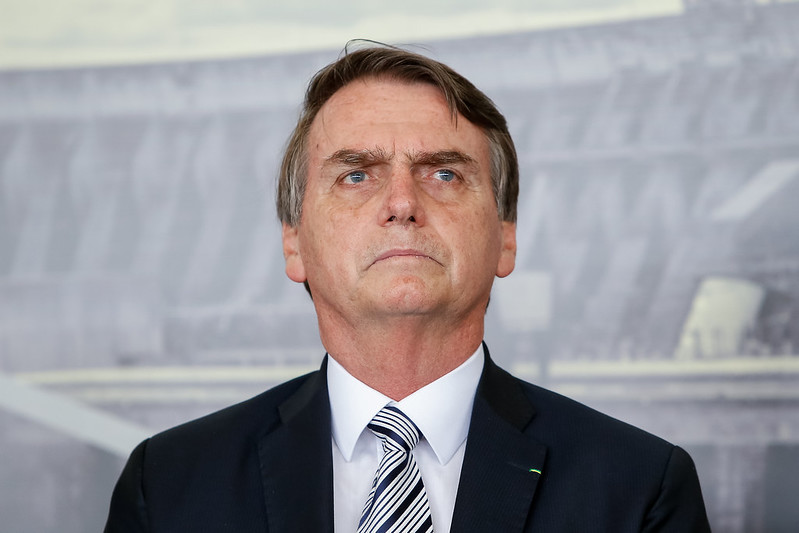
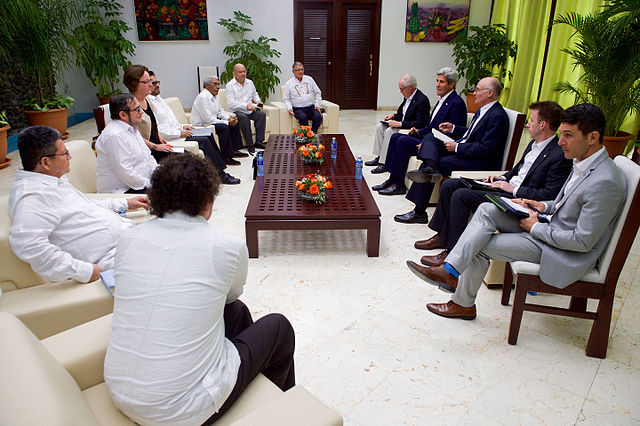
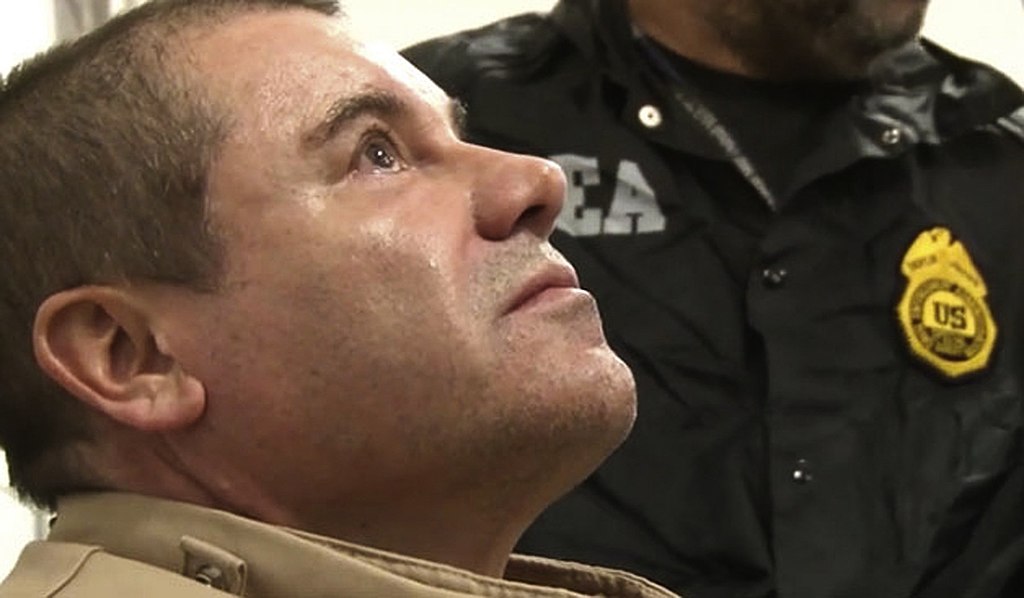
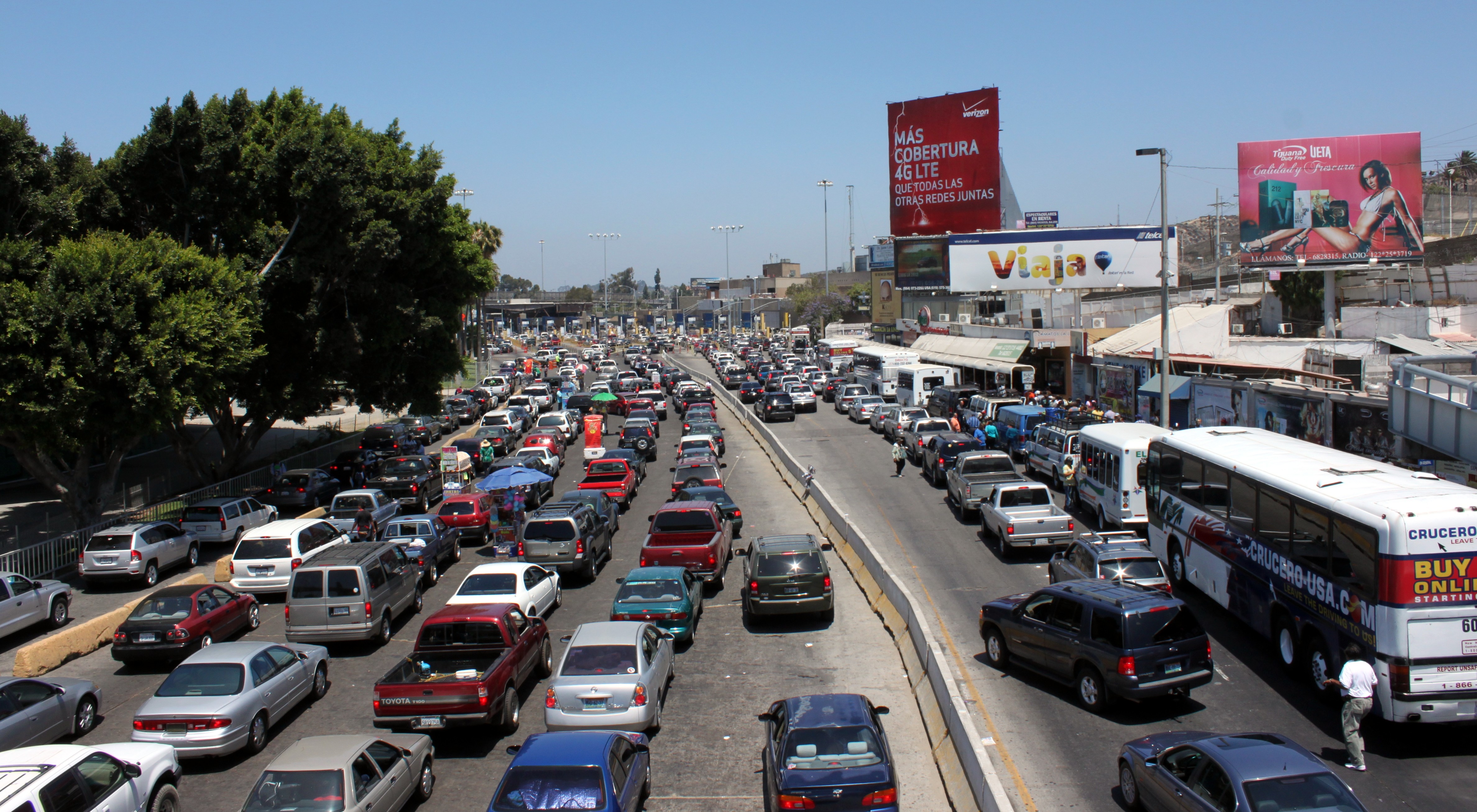
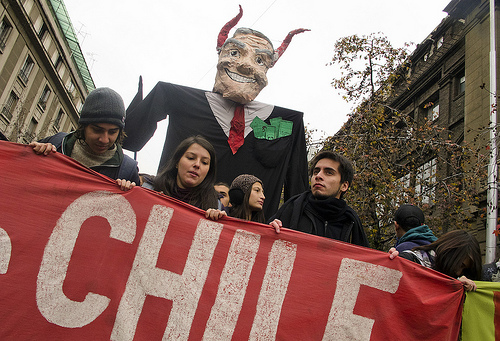
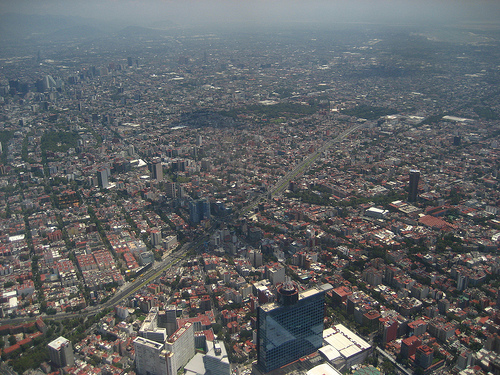
1 Comment
[…] discovery of the two heads in Mexico City comes a day after an Associated Press report said that the Mexican drug trade is dominated by two major cartels – Guzmán’s Sinaloa Cartel and the paramilitary-style […]
Comments are closed.